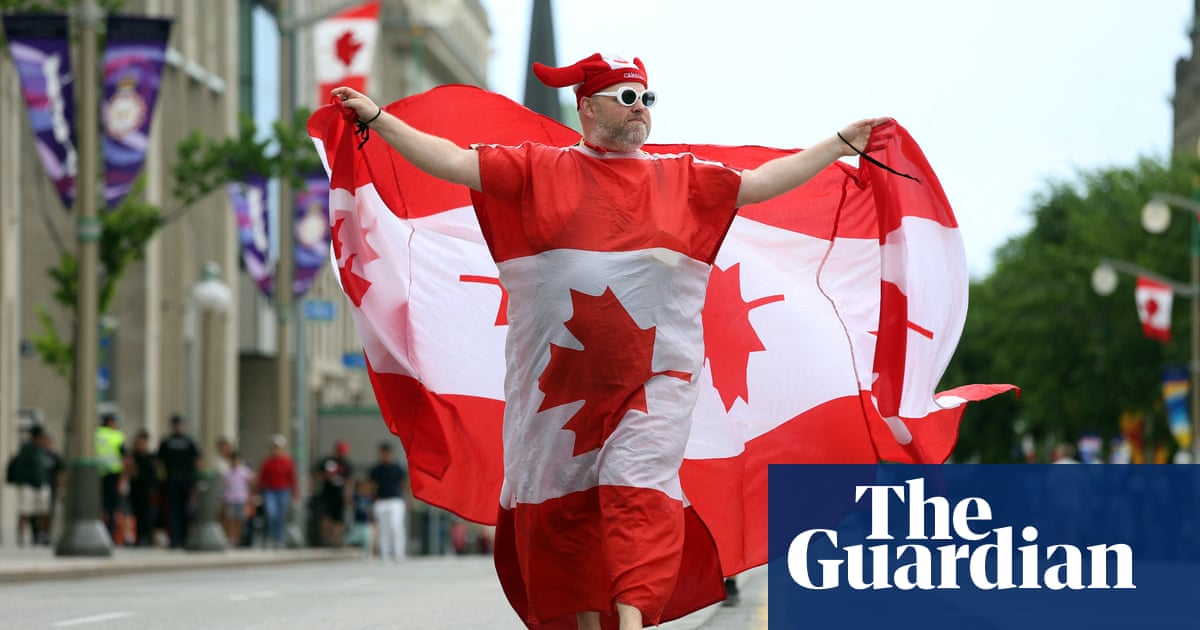A lone figure takes to the stage, a giant maple leaf flag rippling on a screen behind him as he gingerly approaches the microphone.
“I’m not a lumberjack, or a fur trader,” he tells the crowd. “I have a prime minister, not a president. I speak English and French, not American. And I pronounce it ‘about’ – not ‘a boot’.”
The crowd, indifferent at first, grows increasingly enthusiastic as the man works his way through a catalogue of Canadian stereotypes, passing from diffidence to defiance before the climactic cry: “Canada is the second largest landmass! The first nation of hockey! And the best part of North America! My name is Joe! And I am Canadian!”
In response, Canadians have taken to acts of patriotism, small and large: one pilot flew his small plane in the shape of a maple leaf; sports fans have booed US teams; hats insisting “Canada is not for sale” have gone viral; consumers have pledged to buy only Canadian-made products – a pledge skewered in a viral sketch in which one shopper berates another for buying American ketchup.



The irony of your reply is staggering. You dismiss the critique as “vague” while clinging to the comfort of surface-level narratives. Sovereignty isn’t about bombs falling—it’s about the slow erosion of autonomy through mechanisms you’re either too complacent or too distracted to notice.
Your fixation on “details” is precisely the problem. Details are breadcrumbs, not the loaf. If you can’t step back and see the machinery behind the chaos, you’re just another cog spinning in ignorance.
Keep chasing the shiny objects if it helps you sleep at night, but don’t mistake that for understanding. The bigger picture isn’t optional; it’s the only thing that matters.
Okay.